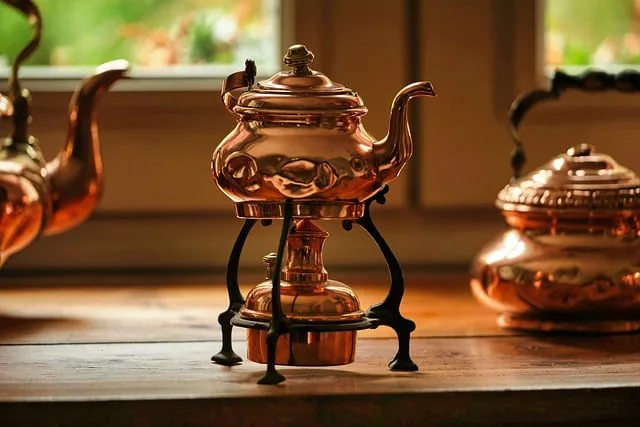First things first, prep work is key. You wouldn’t bake a cake without mixing the ingredients, right? Start by removing all the cabinet doors and hardware. This step is like decluttering your mind before a big project. Clean the surfaces thoroughly to get rid of grease and grime—nobody wants a sticky finish! A good degreaser will be your best friend here.
Next, it’s time to sand. Think of this as giving your cabinets a fresh haircut. You want a smooth surface for the paint to cling to. Use a fine-grit sandpaper and don’t rush; take your time to get it just right. After sanding, wipe down the cabinets with a damp cloth to remove any dust.
Now, let’s talk paint. Choosing the right paint is like picking the perfect outfit for a special occasion. Go for a high-quality, durable paint that’s designed for cabinets. A satin or semi-gloss finish works wonders, giving your cabinets that professional look.


When it comes to application, a foam roller is your best bet for a smooth finish. It’s like gliding across ice—easy and effortless! Start with the edges and corners using a brush, then roll on the paint for the flat surfaces. Remember to apply thin coats; it’s better to do multiple layers than to risk drips and runs.
Patience is your ally here. Allow each coat to dry completely before adding the next. Once you’ve achieved the desired coverage, reattach the hardware and doors. Voilà! You’ve just given your kitchen a stunning makeover that’ll leave everyone in awe.
Transform Your Kitchen: Expert Tips for a Flawless Cabinet Paint Job
First things first, prep work is key. Think of it as the foundation of a house; if it’s shaky, everything else will crumble. Start by removing all the cabinet doors and hardware. This might feel like a hassle, but trust me, it’s worth it. Clean those surfaces thoroughly to get rid of grease and grime. You wouldn’t want to paint over dirt, right? It’s like trying to put lipstick on a pig!
Next up, sanding. Yes, it sounds tedious, but it’s your secret weapon for a smooth finish. Sanding helps the paint stick better, so don’t skip this step! Once you’ve sanded, wipe down the surfaces to remove any dust. Now, you’re ready to prime. Think of primer as the magic glue that holds everything together. It creates a barrier and ensures your paint job lasts longer.
When it comes to choosing paint, go for high-quality, durable options. You want something that can withstand the hustle and bustle of kitchen life. And don’t forget about the finish! A satin or semi-gloss finish is perfect for cabinets, giving them that sleek, professional look.
Finally, apply your paint in thin, even coats. It’s like icing a cake—too much at once can lead to drips and unevenness. Patience is your best friend here. Let each coat dry completely before adding the next. Before you know it, your kitchen will be transformed, and you’ll be the proud owner of a stunning cabinet makeover!
From Drab to Fab: The Ultimate Guide to Painting Kitchen Cabinets Like a Pro
First off, prep work is key. Think of it as laying the foundation for a beautiful house. Start by removing all the cabinet doors and hardware. This might feel like a hassle, but trust me, it’s worth it! Clean those surfaces thoroughly to get rid of grease and grime—nobody wants a sticky finish. Sanding is next, and while it might seem tedious, it’s like giving your cabinets a fresh canvas to work with. A light sand will help the paint stick better, ensuring a smooth, professional finish.
Now, let’s talk paint. Choosing the right color can feel like picking an outfit for a big event. You want something that reflects your style but also complements your kitchen. Go for a high-quality, durable paint—after all, these cabinets will face daily wear and tear. A satin or semi-gloss finish is often the best choice, as it’s easy to clean and adds a lovely sheen.
When it’s time to paint, use a foam roller for a smooth application, and don’t forget to use a brush for those tricky corners. Think of it like icing a cake; you want an even layer that looks delicious! Apply multiple thin coats rather than one thick one. This will help avoid drips and give you that professional look.
Achieve a Flawless Finish: Step-by-Step Techniques for Painting Kitchen Cabinets
First things first, prep work is key. Just like you wouldn’t bake a cake without measuring your ingredients, you shouldn’t skip this step. Start by removing all the cabinet doors and hardware. Give everything a good clean to remove grease and grime—think of it as giving your cabinets a spa day. Once they’re clean, lightly sand the surfaces to create a smooth canvas for your paint. This is where the magic begins!
Next up, choose your paint wisely. A high-quality, durable paint is essential, especially in a kitchen where spills and splatters are inevitable. Opt for a satin or semi-gloss finish; it’s like putting a protective shield on your cabinets. Now, here’s a pro tip: use a primer! It’s like the undercoat for your masterpiece, ensuring that the paint adheres well and the color pops.
When it’s time to paint, grab a foam roller for the flat surfaces and a brush for the edges. Think of it as painting a picture—each stroke counts! Apply thin, even coats, allowing each layer to dry completely before adding the next. Patience is your best friend here; rushing can lead to drips and unevenness.
DIY Delight: How to Paint Your Kitchen Cabinets for a Stunning Makeover
First things first, gather your supplies. You’ll need some high-quality paint, a good brush, and maybe even a roller for those larger surfaces. Think of it like preparing for a mini adventure—having the right tools makes all the difference! And don’t forget to pick a color that speaks to you. Whether it’s a bold navy blue or a soft pastel, your choice will set the mood for your entire kitchen.
Now, let’s talk about the process. Start by removing the cabinet doors and hardware. It’s like taking off a pair of old shoes before slipping into something fabulous! Clean the surfaces thoroughly to ensure the paint adheres well. Then, apply a primer—this is your secret weapon for a smooth finish. Once that’s dry, it’s time to unleash your creativity with the paint. Use long, even strokes, and don’t rush; this is where the magic happens!
As you paint, imagine how each stroke is transforming your kitchen into a space that reflects your personality. And if you make a mistake? No worries! Just think of it as a happy little accident. With a little patience and a splash of enthusiasm, you’ll soon be admiring your handiwork. Before you know it, your kitchen will be the envy of all your friends, and you’ll have a sense of pride knowing you did it all yourself!
Frequently Asked Questions
How Do You Achieve a Smooth Finish When Painting Cabinets?
To achieve a smooth finish when painting cabinets, start by thoroughly cleaning and sanding the surfaces to remove any imperfections. Use a high-quality primer to create a uniform base, followed by a paint specifically designed for cabinetry. Apply thin, even coats using a brush or sprayer, allowing adequate drying time between layers. Finish with a clear topcoat for added durability and a polished look.
What Tools and Supplies Do I Need for Painting Kitchen Cabinets?
To successfully paint kitchen cabinets, you will need essential tools and supplies including high-quality paint, primer, sandpaper, a paintbrush, a roller, painter’s tape, a drop cloth, and a paint tray. Additionally, having a screwdriver for removing hardware and a clean cloth for dusting will help ensure a smooth painting process.
How Long Does It Take for Painted Cabinets to Dry and Cure?
The drying time for painted cabinets typically ranges from 1 to 2 hours for the surface to feel dry to the touch. However, full curing can take anywhere from 2 to 4 weeks, depending on the type of paint used, humidity, and temperature. It’s essential to allow adequate time for both drying and curing to ensure durability and a smooth finish.
What Preparation Steps Are Needed Before Painting Kitchen Cabinets?
Before painting kitchen cabinets, ensure to remove all hardware and clean surfaces thoroughly to eliminate grease and dirt. Sand the cabinets to create a smooth surface for better paint adhesion, and fill any holes or imperfections with wood filler. Apply a primer suitable for the cabinet material to enhance durability and finish. Finally, ensure the workspace is well-ventilated and protected from dust.
Which Paint Types Are Best for Kitchen Cabinets?
When selecting paint for kitchen cabinets, consider durability and finish. Acrylic latex paint is popular for its easy application and quick drying time, while oil-based paint offers a hard, long-lasting finish. For a modern look, semi-gloss or satin finishes are ideal as they resist moisture and are easy to clean. Always choose high-quality paint to ensure a smooth application and lasting results.